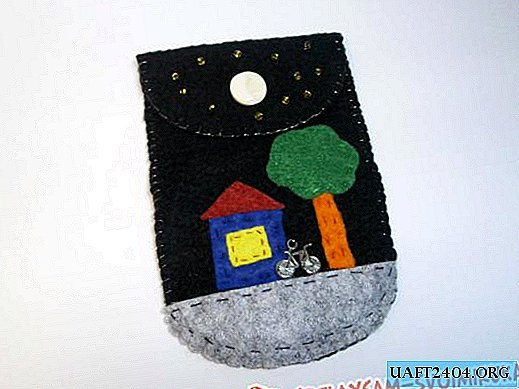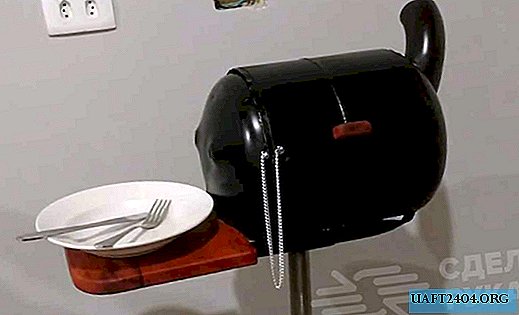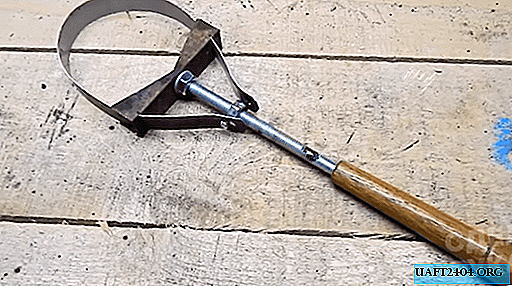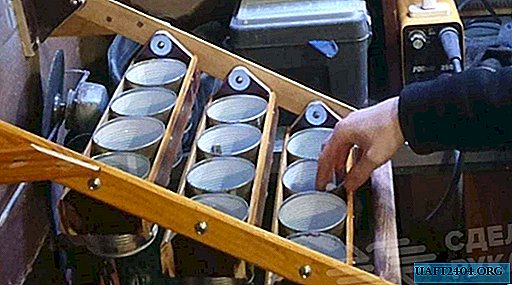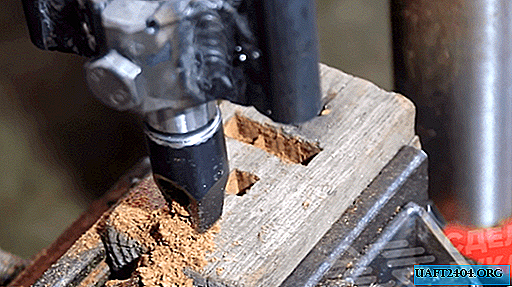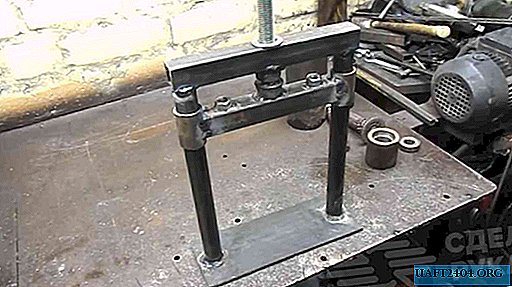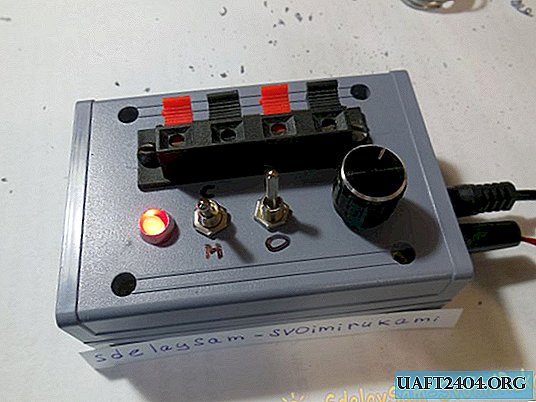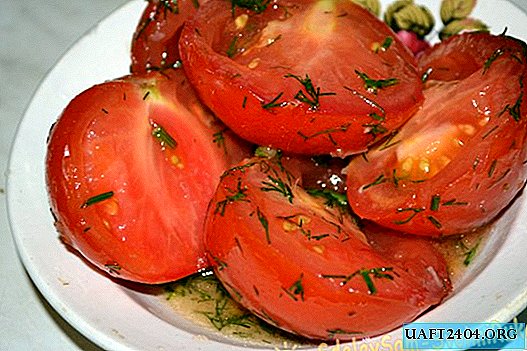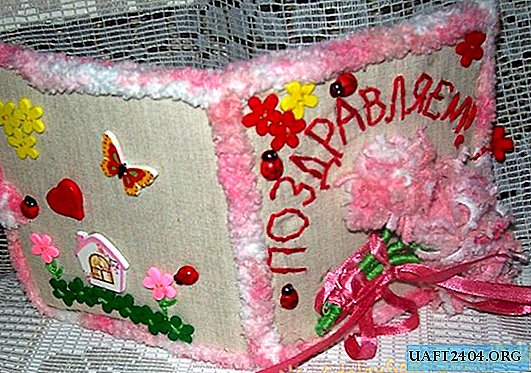Share
Pin
Tweet
Send
Share
Send
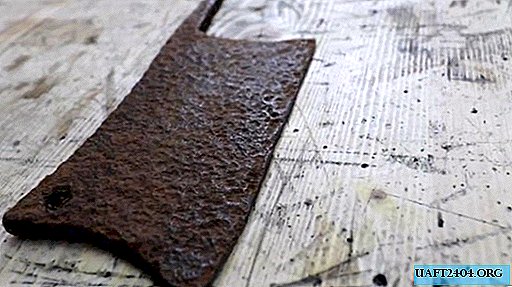
I am sure that many of you in your life have found antique knives, forks, dishes, etc. So I, sorting the rubble in the old barn, I found a kitchen cleaver, or rather its blade, since the handle has long decayed. He was in a terrible and almost unusable condition. Anyone else in my place would just throw it in the trash and that’s it. But I decided to give him a second life.

As you can see, the entire canvas of the cleaver is so badly rusted that sinks in unprepared places have a depth of almost 2 mm. And in general it is not known what thickness of the knife was originally.
Restoring a rusty meat knife
Clamp the knife with a clamp on a piece of wood to the table.

And we begin to process angle grinders. Grind one side first.

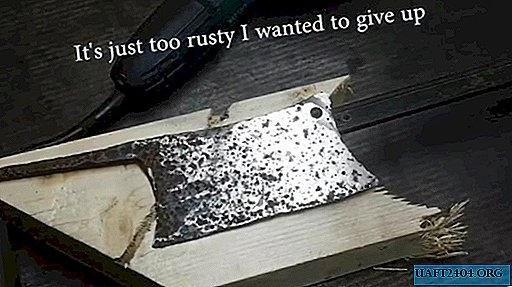
Next, we finish on a belt grinding machine.

To keep the blade free from nicks, grind off the cutting edge.

After a long rough processing, the cleaver looks like this.

Then we grind with a circle with the finest grit.

We process the hole by passing a drill, drilling all the rust.

Slicer ready for polishing.

Apply polishing paste.

And polish with a soft circle to shine.

Shines like new.

Pen making
Now you need to make a knife handle. To do this, take a dense tree and draw a contour of a future pen on it with a pencil.

We cut along the contour.

Cut in half.

We make a chisel for the groove under the blade handle.

We breed epoxy resin. We generously coat the groove and put the handle of the blade into the recess.

Glue the second half of the wooden handle on top and clamp it with a clamp.

After drying and hardening of the epoxy resin, we clamp the cleaver in a vice through a piece of wood so as not to leave marks on the blade.
We process the handle, giving it the desired shape.

At the end we grind to smoothness.

Then we impregnate the tree with drying oil.

The last stage is sharpening the cutting edge to a sharp razor. All this is done on a stone with minimal crumb moistened with water.

Reconstructed Cleaver
Cuts paper like a razor. Exactly what is needed!

Cleaver restored.

As you can see, unprocessed sinks - traces of corrosion - are perfectly visible on a shiny canvas. To remove them, you need to grind the knife significantly. I did not do this and removed the optimal layer from the blade. I think this will not affect the quality of cutting.

The cleaver turned out to be very good steel - it has not been dull for quite some time.
I generally like antiques. Bye everyone!
Watch the detailed video
Share
Pin
Tweet
Send
Share
Send

